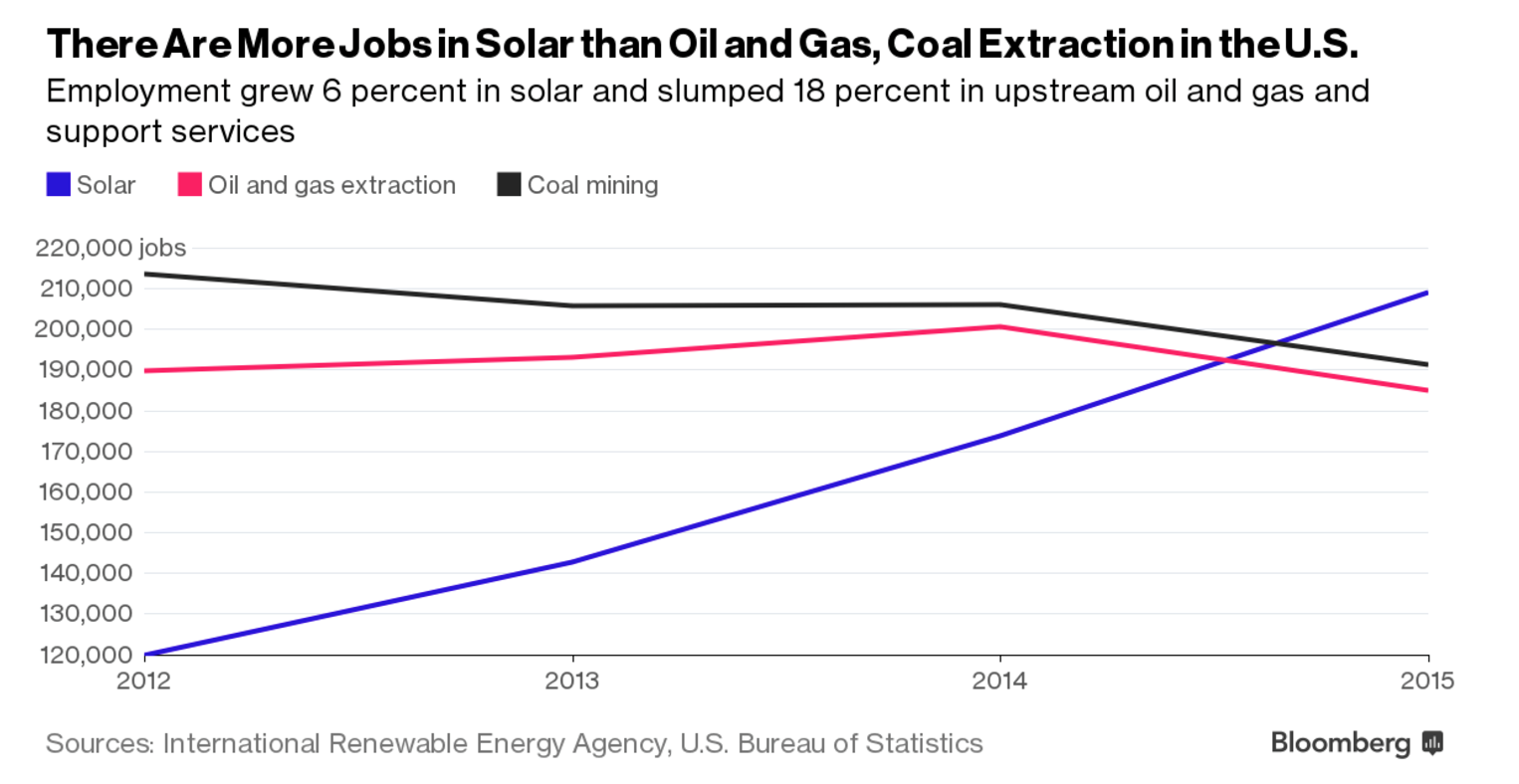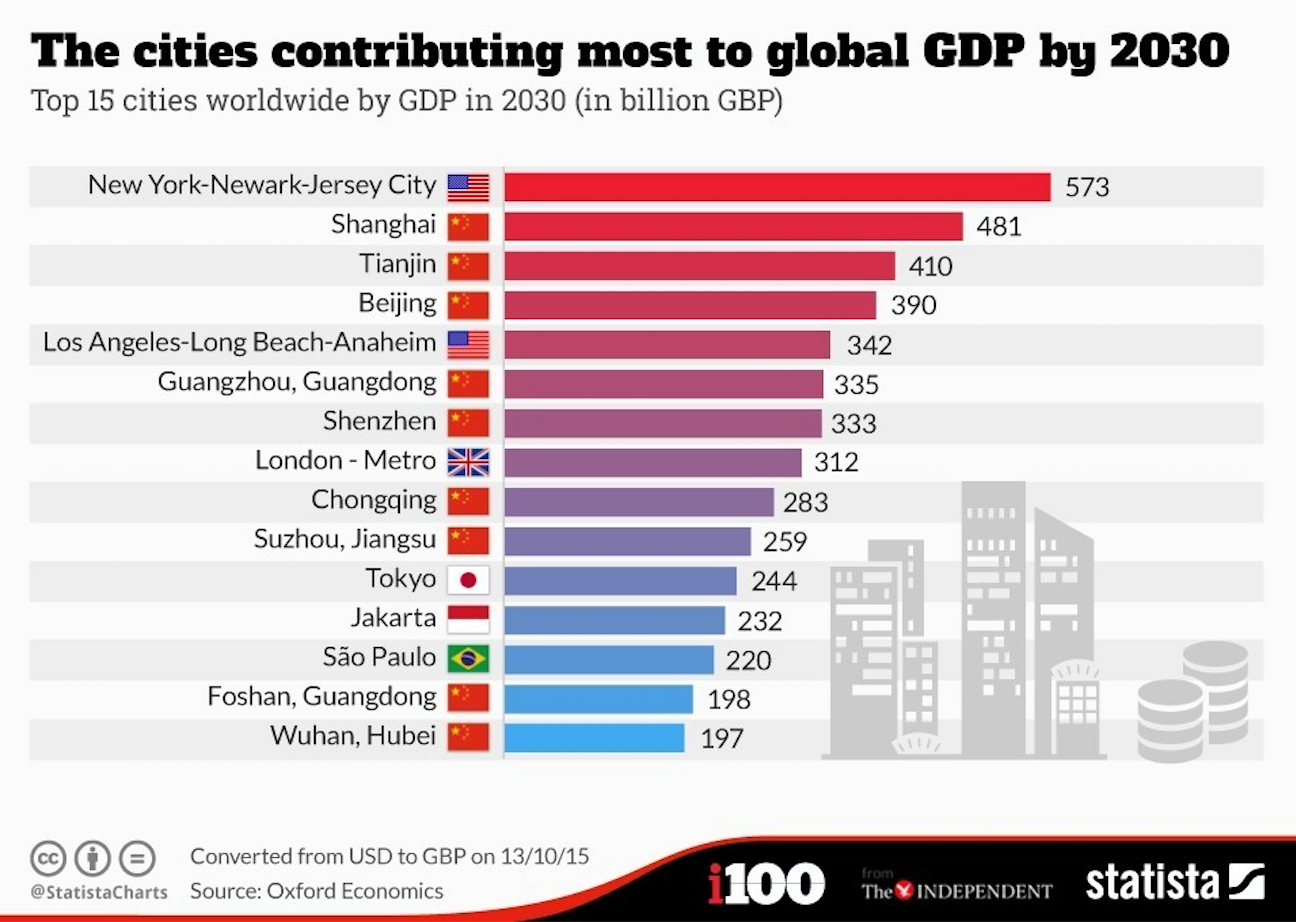Will The Environment Get Trumped?
From our CEO: Don’t Wait for Governments to Solve our Climate Challenge, it’s Up to Everyone.
Now that Donald Trump has been elected to be the next President of the United States, China must lead the fight against climate change domestically and internationally. When I moved to China more than five years ago it was because I believed that China was the country that had the most potential for setting the world on a path towards a low carbon future. Now that role has been solidified.
This year, China is on track to install over 30 GW of solar, that’s equivalent to the total solar installed capacity in the US. But as an American, I am not here to gloat. Beyond continuing to hope that candidate Donald Trump may not hold the exact positions as president-elect Trump, I believe that this is the time – more than ever – to take concrete actions ourselves to accelerate the clean energy transformation.
This year, China is on track to install more solar than the total U.S. installed solar capacity.
From my experience at Seeder, here are four proactive actions I think we can take and why they should align with president-elect Trump’s stated goals:
Job Creation for the Future
Trump has always accused China of taking American jobs. But clean energy has been creating millions of jobs in the U.S., China, and beyond. Currently, 2.5 million Americans are employed in renewable energy and energy efficiency sectors, compared with 3.6 million in fossil fuel and related industries. In China, there are 35% more people working in clean energy than in fossil-fuels. Stifling the clean energy industry will dramatically reduce jobs, and hand China a competitive advantage in this sector for decades to come.
Leveraging Free Market Solutions
The growth of clean energy has benefited greatly from government support worldwide (think feed-in-tariffs, tax credits). But the continuous decrease in technology costs as well as innovations in financing have made renewables much more competitive in the market, and we expect this to continue.
When the prospect of government support is decreasing, we should look towards market solutions to help clean energy make more financial sense. In today’s economy good returns are scarce, yet environmental technologies and innovative business models are increasingly making clean energy a wise investment choice. As Eric Holthaus of Slate writes, “Trump may be against environmental measures, but he’s not against economic ones and doesn’t want to fight the market.” Not to mention that clean energy is a key part of achieving energy independence as well as affordable energy.
Innovation Through Deregulation
Not all deregulation is bad. Utilities are the biggest barrier for renewables’ penetration as they own the distribution networks and the customers. If deregulation policies can help break utility’s monopoly and allow for competition, they can benefit from clean power in the long run. Especially if they embrace their role as power distributors and allow the private market to develop and own the power generation side, which has proven to be much more efficient. Even in places like Florida which voted for Trump, the anti-solar utility policies were voted down.
This is in line with the global trend towards distributed networks, P2P services, and increased utilization of existing assets (think Uber, airbnb and others). Energy is no different; it is most efficient when generated on-demand at the point of use.
Megacities “Trump” Countries
Cities and states are becoming more active than nations and will have a much bigger say in carbon output, job creation and energy production. This is very much in-line with republican and conservative “small government” and “states rights” ideology. Much like what Mayor Bloomberg did for New York City, cities and city leaderships are crafting concrete plans to grow sustainably. Organizations like the C40 are stewarding this shift in megacities. So now those local elections we used to take for granted have much more at stake.
If we see only the worst, it destroys our capacity to do something.
Now What?
The transition to a low carbon future is already well underway. Private market goals, standards and systems such as carbon trading are already put in place. Even if President-elect Trump forces the EPA and other government bodies to change course, it will be very difficult to stop this momentum and to head in a completely opposite direction. So working to keep these positive steps in place is the best thing that we can do. As Howard Zinn reminds us when facing tough situations, the future is an infinite succession of presents:
“If we see only the worst, it destroys our capacity to do something. If we remember those times and places—and there are so many—where people have behaved magnificently, this gives us the energy to act, and at least the possibility of sending this spinning top of a world in a different direction.”
Like Zinn, what I’ve seen over the last two weeks is action, emotion and declarations of commitments to impact from people and businesses. This could be the greatest outcome of a Trump presidency: a world which sees and truly believes, for the first time, that it’s up to all of us to create the future that we want to live in.





